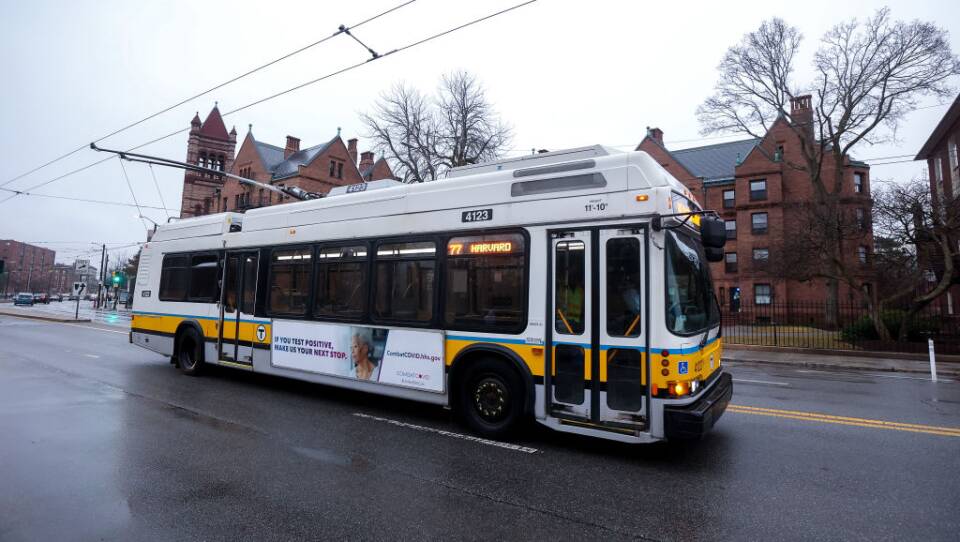Updated March 13 at 12:50 p.m.
The last of the electric-powered trackless trolleys that have carried passengers over the roads of Cambridge, Watertown and Belmont for more than 80 years will make their final runs Saturday night, as overhead wire technology rides into near extinction.
Next week, the MBTA is replacing the trackless trolleys with diesel-hybrid buses as a temporary solution until a full battery-powered fleet arrives in a couple of years.
The MBTA says it has to remove the overhead wires that power the trolleys to accommodate extensive road work planned for Mt. Auburn and Belmont Streets, and it makes no sense to go to the expense of putting the wires back up after the road work is done since battery-powered buses are due to arrive in 2024.
And they say the 28 trolleys would have to be taken out of service anyway while the North Cambridge garage that houses them is taken down and a new maintenance facility is built to service the 35 new battery buses that will replace them.
Bradley Clarke, president of the Boston Street Railway Association, says the era of trackless trolleys began back in the 1930s. But when larger, diesel-powered buses arrived in the 1950s, the trolleys began to be replaced. Clarke says having buses that didn’t need overhead wires meant there was less infrastructure to maintain and the bus could change its route if there were a fire or another vehicle blocking the road, which is something the trackless trolley can’t do.
By 1963 almost of the trackless trolleys in Boston were gone. Clarke said the only remaining routes were the ones in Cambridge, Watertown and Belmont because they all ran through the Harvard Square Tunnel, where diesel fumes would be a hazard to pedestrians. It’s the same reason parts of the Silver Line are electrified as those buses travel through tunnels in downtown Boston.
At a recent public hearing, Scott Hamwey, director of bus modernization for the MBTA, said: "This fleet [of trackless trolleys] is our oldest fleet in the system. It's going to be 23 years old. We're already facing challenges with these vehicles in terms of finding replacement parts for them.” In fact, Boston is just one of five transit systems left in the U.S. with trackless trolleys, a technology that years ago dominated city streets.
Even though the temporary result is to replace clean-running electric trolleys with diesel-burning buses, Clarke doesn’t blame the MBTA for doing away with the trolleys considering the expense involved in replacing the wires to keep them running only to take them down again when the battery buses arrive in two years. “I think they're being businesslike and trying to get the most for the taxpayer dollar,” he said. “They’re sort of between a rock and a hard place.”
Correction: A previous version of this article misstated the number of transit systems that use trackless trolleys.








